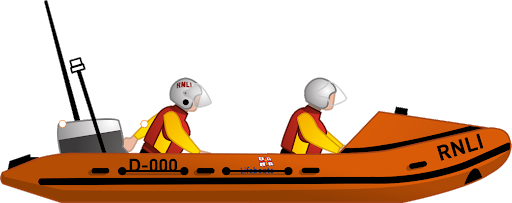Art or lifeboats?
I plunged myself into working across the education, food, technology, biotech, organisational and governance sectors after exiting a path that had already been paved out for me in academic science.
I left academic science to find the others — those who were committed to doing something as I watched the Earth burn. I was sitting in one of the world’s top biofuel labs and literally thinking to myself, I’m sitting here and watching the world burn. After a stint in climate activism and the fossil fuel divestment movement and realising that was pretty much pointless, I left.
I set out with enough energy to fuel full time self-directed research into the alternative options available to change the economic system, unwind climate change, stop ecological destruction, champion new forms of education, save lives, teach and design a master’s course, run a farming and land project, begin consulting, testing ideas through workshops, and have countless conversations with others who were signposted as ‘changemakers’.
In the process, something in me has died a little bit. I miss the analytic and rational approach from my days in the laboratory. In the world of “changemakers” I have seen so much work being fuelled by fantasy ideology and a sort of totally delusional psychological denial about the possibility of what is going to work, on what scale, and for whom. I think I have witnessed the birth (or growth, or rebirth) of a kind of new spiritual bypass — a form of spiritual belief which lets us feel good about doing work/projects that feel and look good, but don’t do good.
I don’t see any good strategy based on reality in the world of people trying to change the world for the better. It’s like some kind of forcefield that stops larger collaboration, strategic thinking and the kind of sanity and rationality displayed in science and business. The sector is clouded by a kind of blind panic and over-exuberance but in the wrong direction. Eventually the energy sort of breaks and gives out, and people collapse back onto paths like child rearing, following a trodden path, becoming a company consultant, these sorts of things.
There also seems to be a strange resistance to large scale, true collaboration. Like, the sort of collaboration that happens in armies, or huge global corporations. Everyone is just sort of competing with each other, sure that their slightly different version of changemaking ambitions is just that little bit better and they’re really going to make it and truly save the day. Capitalism has an edge: in capitalism, no-one saves the day. You all work together to make the people at the top, and yourself, a little bit, richer.
But there is no save the day. Maybe a few do, like Elon Musk. But it’s not like everyone in capitalism is treating their work like an art form. And this is the problem. In the changemaker world, everyone’s work is their art. It’s their specific, beautiful, perfect way of changing the world. But it is not a science. It is not business. It is not an ends justifying the means. It is all means justifying ends.
There are literally hundreds of people I know working on essentially the same thing but competing on who does it. And efforts to bring changemakers together to “allow the field to see itself” or “build a movement” or “agree on language” always seems to ricochet off, or create whirlpools where no outputs come out, and people leave with a sense that they’ve accomplished something, when actually they’ve made a lot of flipchart paper diagrams and caused a lot of friction but nothing of fruition.
What is that forcefield?
Could it be, that deep down, many of these people don’t actually care about having an impact and changing the world for the better? Would they rather get their art published and seen and lauded than develop a coherent strategy and collaboration to achieve something? Shouldn’t there be mass coordination of these efforts and division of labour by now?
Every now and then the odd changemaker will suddenly publish some kind of blogpost where they have written out a list of the different systems that would need to fit together to make systems-level change — things like ‘we need permaculture and also a new education system and also new transport and also ecovillages’ but there is no concerted action to model, plot and project the possible ways ahead, using numbers, and real infrastructure, and models of what is possible and how much it would cost.
Changemaking as it currently stands is like living in an art show which is meant to be a high level strategy meeting. Anyone who has dipped their toes in the high end art world they will know what I mean. Some high end art I respect hugely (you know who you are!), but many areas exist where people masquerade concepts and objects that make no sense and defy rational logic but everybody agrees that it’s amazing and worth a lot of money and people compete and build entire narratives and careers around this stuff.
While art is important, what is the first thing you need on a sinking ship?
Art or lifeboats?
